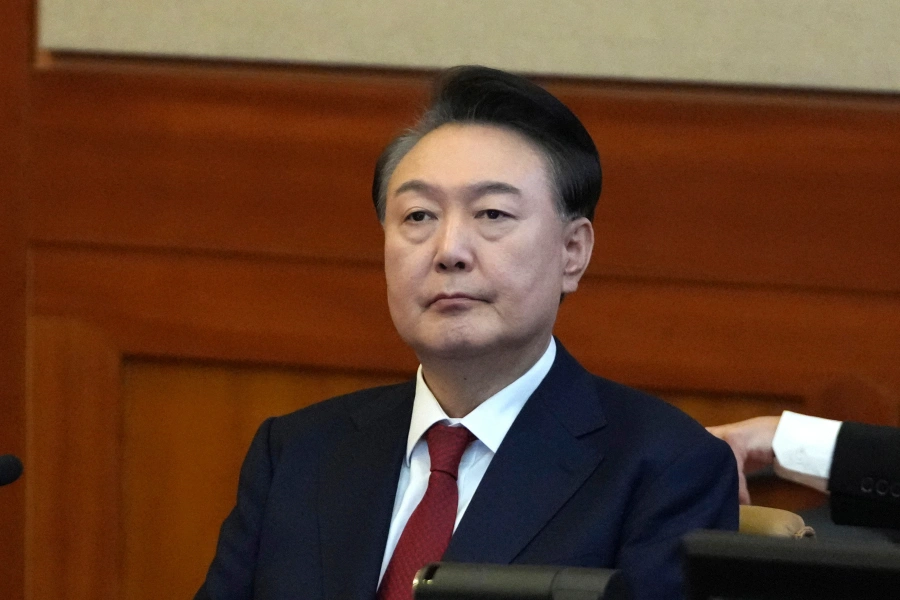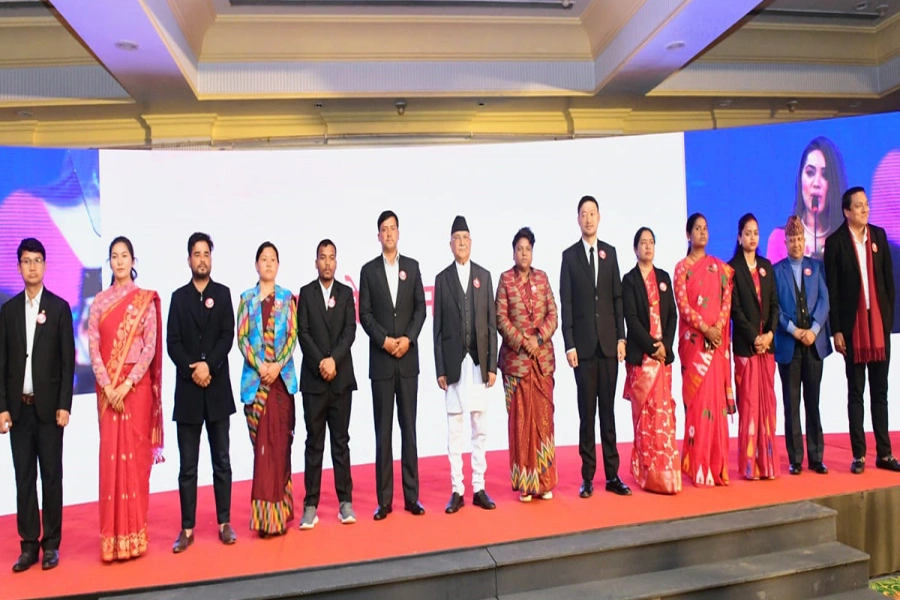KATHMANDU, Jan 19: A high-level committee formed to suggest the commissioners for two transitional justice (TJ) bodies has recommended the chiefs and members for the bodies established to settle war-era cases. Conflict victims have been waiting for justice since the Maoist insurgency ended in 2007.
As expected earlier, the committee has recommended Ganesh Datta Bhatta, an assistant professor at Nepal Law Campus, as the head of the Truth and Reconciliation Commission (TRC). Bhatta was projected as the head of TRC when major parties started consultations about the probable candidates separately when the recommendation committee was making final preparations.
Even though Bhatta didn’t file an application at the recommendation committee seeking the position, his name was included in the roster of probable candidates to lead the TRC, where most cases of serious human rights violation are filed, by the committee itself. Bhatta’s name, according to a committee member, was included just before issuing a public notice in national newspapers, and shortly after an understanding was made among the top leaders of the major political parties — Nepal Communist Party (NCP) and Nepali Congress (NC).
Bhatta is considered close to NC president Sher Bahadur Deuba. As a prime minister during the Maoist insurgency, Deuba has been implicated in multiple cases of human rights violation. So is the case of the then Maoist chief Pushpa Kamal Dahal. Former Maoist leader Dahal is now the executive chief of the ruling NCP.
Bhatta’s appointment was ensured after both Dahal and Deuba liked him.
Panel proposes Bhatta for TRC head, Mallick for CIEDP chief

Similarly, former deputy attorney general Yubraj Subedi has been recommended as the chief of the Commission for Investigation on Enforced Disappeared Persons (CIEDP). Subedi recently retired as a High Court judge.
Ideologically left-leaning Subedi has equally good relations with the NC leaders.
Other members recommended for TRC are Prachanda Raj Pradhan, Govinda Gautam, Mana Dahal and Bishnu Pokhrel. Sunil Ranjan Singh, Bishnu Prakash Bhandari, Ganga Adhikari and Sarita Thapa have been recommended as members of CIEDP.
“We submitted the name lists of chiefs and members of the two commissions to the law minister. He will soon present our recommendation at the Cabinet soon,” said Prem Bahadur Khadka, a member of the recommendation committee adding, “Almost all candidates are from legal background.”
Except former TRC chief Surya Kiran Gurung all nine former members of the commissions including CIEDP head Lokendra Mallic had applied seeking the continuation of their jobs. But the recommendation committee didn’t pick any of them as the conflict victims strongly objected to the re-appointment of “incompetent commissions for the same job”.
The name lists of TJ officials were finalized hours after top leaders from NCP and NC reached a two-point agreement in Baluwatar. Leaders assembled at Baluwatar had decided to revise the TJ law based on provincial consultations held in the presence of conflict victims and other stakeholders and appoint the commissioners soon.
The conflict victims have termed the recent move a “political dishonesty”.
Leaders of the conflict victims, who had been demanding that a separate political mechanism be formed to deal with the formulation of law and entire transitional justice mechanism and appoint the commissioners in a transparent manner, are miffed with the recommendation process.
“The politicians deceived us again. Since loyal cadres of political parties appointed as commissioners are not going to deliver justice for us, we are not supporting these commissions,” said Bhagiram Chaudhari, president of Conflict Victims’ Common Platform, “It’s another ploy to add insult to the injury of the conflict victims and give amnesty to the political masters.”
Established in February 2015, both CIEDP and TRC were initially mandated to complete investigations into conflict-era cases and ensure justice to the victims within two years. The government extended their deadlines by two more years to complete the given tasks. Yet, not a single conflict victim received justice within the given period. As many as 61,000 cases have been filed at the TRC. Of them, TRC has concluded preliminary investigations into about 3,000 cases.
Of the total 3,197 complaints filed at the CIEDP, 219 were put on hold after they were found not related to the conflict. Similarly, 414 complaints were referred to the TRC, saying they fell under the TRC’s jurisdiction. Of these 414 complaints, 137 were again sent to the CIEDP for further investigation.
The remaining 2,506 complaints were deemed suitable for detailed investigation. Of them, CIEDP completed the detailed investigation into 2,008 cases before wrapping up the progress made till April last year.


































